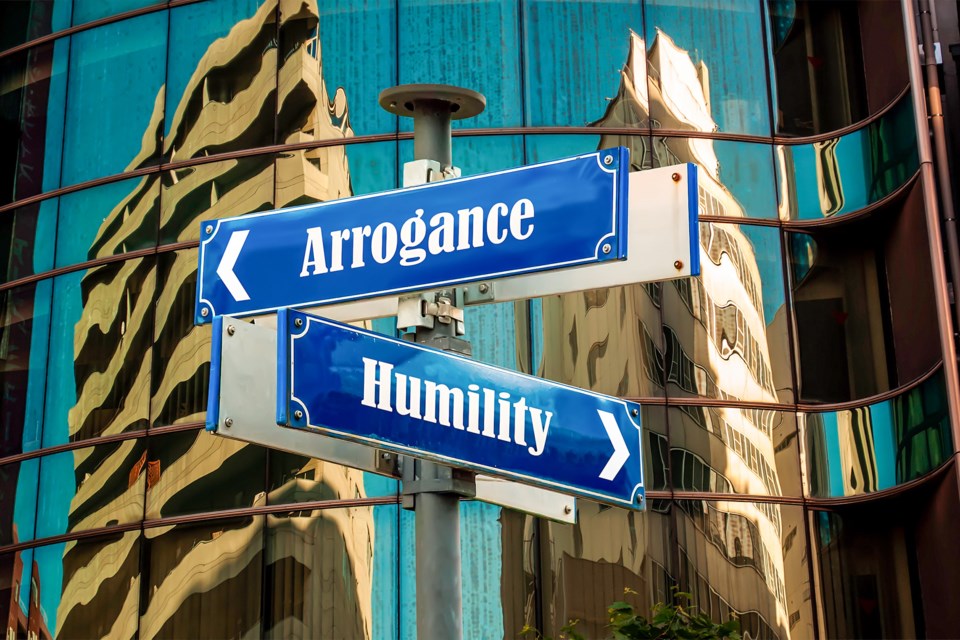In 1983 I was a very young writer for Britain’s New Statesman magazine. I was asked to interview the children’s author Roald Dahl, who had reviewed a book about the war in Lebanon that went far beyond criticism of Israel and bordered on downright anti-Semitism.
I assumed he would explain the difference between anti-Zionism and anti-Semitism and clarify his stance. What he said instead was, “There is a trait in the Jewish character that does provoke animosity, maybe it’s a kind of lack of generosity towards non-Jews. I mean, there’s always a reason why anti-anything crops up anywhere; even a stinker like Hitler didn’t just pick on them for no reason.”
The rant continued, with references to Jewish men not fighting in the Second World War. When I told Dahl that my Jewish grandfather had won several medals and been wounded, and that Jews were over rather than under-represented he refused to withdraw his comments or apologize. The article that I wrote caused quite a sensation and made me briefly famous, in a very limited way. I didn’t speak to Dahl again but another journalist did some years later, and Dahl hadn’t changed one bit. If anything, he was worse.
I mention this again now because Dahl’s publishers recently announced that they were to produce versions of his books with allegedly offensive words such as “fat” and “ugly” removed. Not, is should be emphasized, because generations of children and parents who read the books had complained, but because, if we’re to be candid, someone, somewhere thought they might cause offence.
The angry reaction to the idea was so strong that the publishers have changed their minds, or at least hedged their bets. The criticism came not just from those who see dangerous censorship everywhere, but leadings authors and intellectuals. Because it was a very stupid idea. Am I still allowed to say stupid?
Dahl was an anti-Semite. I know that better than most people. He was a nasty man with repugnant ideas. He was also a gifted author who understood children’s minds and fantasies. And —this is vital — we can read and enjoy him while still detesting his racism. This entire issue requires sense, sensibility, and basic common sense.
In 2011 Peter Jackson commissioned Stephen Fry to write the screenplay for a remake of The Dambusters. Guy Gibson, the heroic commander of the RAF squadron featured in the 1955 movie, owned a black Labrador dog. It was named the N-word. Pilots used the dog’s name to signal successful attacks. Thus it was used repeatedly in the original movie.
Quite clearly it would be deeply offensive, and just bizarre, to use the word now, and Stephen, a man who is extremely suspicious of any form of censorship, gently and wisely changed it to Digger. There was, however, outrage. For some people it was as if a tiny edit that did nothing to change the story was a monumental act of what they described as political correctness. They were wrong.
I can listen to and relish Wagner while despising his politics, and can read so many early 20th-century novelists and manage to ignore the occasional jarringly anachronistic and troubling epithets and descriptions. Because I can make up my own mind, make decisions, judge, and act accordingly. I don’t have to be told, and have my hand held, or perhaps gripped.
There’s room and need for editing because language is not only mutable but can cause profound harm. Usually it’s obvious, and most people agree. It’s when control becomes more important than sensitivity that we encounter problems, and that’s clearly what happened here.
When I was 14 years old, I had to study Shakespeare’s Henry IV Part One for what back then in Britain were called O Levels. At one point Falstaff, a central and much-loved character, claims to have defeated numerous opponents. If he’s lying, he says, “I am a Jew else: an Ebrew Jew.”
There were several Jewish students in the class. Our teacher couldn’t and didn’t expunge the words but used them as an opportunity to speak about the evils of anti-Semitism and to discuss how we should approach and understand Shakespeare. It was a learning moment, a beautiful moment. I’m pretty sure that old brute Roald Dahl would have hated it, but I still don’t think his books should be changed.
I’ll say it again. Sense, sensibility, and basic common sense. Surely that’s really not asking too much. My apologies if that causes offence...

